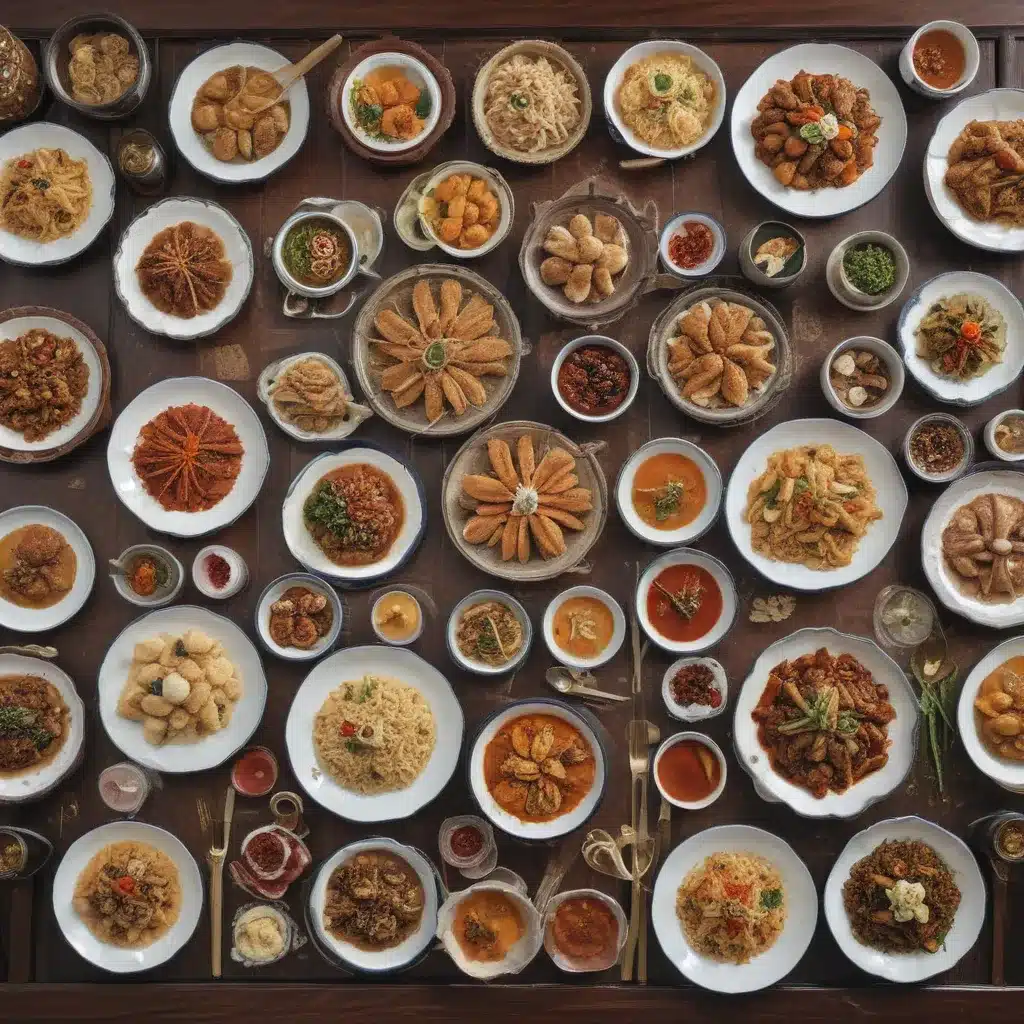
Fit for Royalty
As I stepped through the ornate wooden doors of Jihwaja restaurant in Seoul, I felt transported back in time to the grand banquet halls of the Joseon dynasty. The intricate decor, the elegant table settings, and the air of reverence surrounding every dish – it was all a feast for the senses, worthy of the most discerning palates of Korea’s imperial past.
My husband and I were about to embark on a culinary journey unlike any other, sampling the meticulously reconstructed royal court cuisine that had once graced the tables of kings and queens. This was no ordinary meal, but a meticulously choreographed ritual, each course a work of art steeped in centuries of tradition.
As I learned from Kimchimari, the menu we were about to savor had been painstakingly recreated from historical records, including the actual banquet menu for Queen mother of King Jeongjo’s 60th birthday party in 1795. It was a testament to the dedication of the Hwang family, who had carried on the legacy of royal cuisine since the Joseon era.
A Feast for the Senses
The meal began with an array of delicate “dry snacks” – pumpkin seed dasik, walnuts rolled in persimmon, raw chestnuts, and more. Each morsel was a masterpiece, a harmonious blend of nutty, sweet, and savory flavors that awakened our palates and set the stage for the culinary spectacle to come.
As the courses progressed, we were treated to a parade of artfully presented dishes, each one more intriguing than the last. The glutinous millet gruel with water kimchi and candied fruits was a masterful balance of textures and flavors, while the sizzling grilled cod with citron soy sauce had us entranced by the theatrical table-side presentation.
But it was the Bo Kimchi, or Bossam Kimchi, that truly captivated me. This delicately seasoned kimchi, wrapped in large cabbage leaves and studded with delectable seafood, was a revelation. It had been a childhood favorite of mine, but I had long forgotten its exquisite flavors. To savor it once again, in this regal setting, was a true homecoming.
A Culinary Time Capsule
Throughout the meal, our attentive server provided a detailed explanation of each dish, transporting us back to the royal courts of the past. We learned about the significance of the ingredients, the techniques used to prepare them, and the traditions that had been meticulously preserved over the centuries.
It was as if we were peering into a culinary time capsule, experiencing the very flavors that had once delighted the palates of Korea’s most revered rulers. The level of care and craftsmanship that went into every bite was truly humbling, a testament to the pride and artistry of the Joseon dynasty’s royal chefs.
Honoring Tradition
As we indulged in the final course, a refreshing Omija Hwachae, I couldn’t help but feel a deep sense of gratitude for the Hwang family’s dedication to preserving this remarkable culinary heritage. In a world where modern trends come and go, it was reassuring to know that there were still those who remained steadfast in their commitment to honoring the past.
The Korean Garden Boston website, which celebrates the rich culinary traditions of South Korea, would undoubtedly be thrilled to feature this remarkable restaurant and its meticulously crafted royal court cuisine. It is a living, breathing embodiment of the country’s regal past, a culinary legacy that deserves to be shared with the world.
Exploring the Depths of Korean Cuisine
As I reflect on our unforgettable experience at Jihwaja, I’m reminded of the vast and varied depths of Korean cuisine. From the humble street foods to the exquisite royal banquets, there is a richness and complexity to this culinary tradition that never ceases to amaze.
And the journey of discovery is far from over. With each new restaurant I visit, each new dish I try, I uncover new layers of flavor, technique, and cultural significance. It’s a never-ending exploration, one that I’m eager to continue as I delve deeper into the extraordinary world of Korean cuisine.
So, if you ever find yourself in Seoul, make sure to add Jihwaja to your itinerary. Step through those ornate doors and prepare to be transported to a bygone era, where kings and queens savored every bite of their meticulously crafted imperial feasts. It’s a culinary experience that will leave an indelible mark on your soul, a testament to the enduring power of tradition and the artistry of the human palate.
